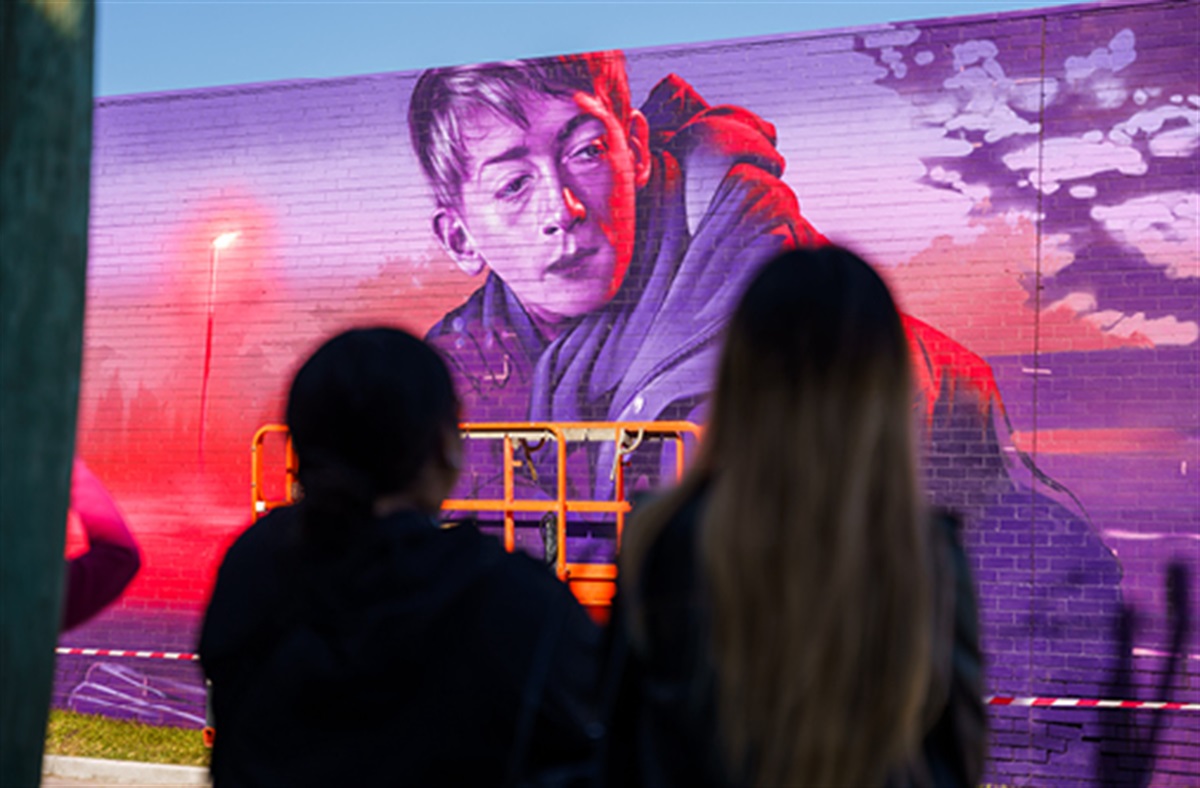*Check against delivery*
Good morning.
I’d like to begin by acknowledging the traditional owners of the land on which we meet – and pay my respect to their Elders, past and present.
I extend that respect to all First Nations People who are here with us today.
In doing so, I recognise the disparity in access to health outcomes faced by First Nations people, especially in remote communities.
This year, Australians will be asked whether the Constitution should be altered to recognise the First Peoples of Australia by establishing an Aboriginal and Torres Strait Islander Voice.
It is a simple question, that has come from a generous offer.
But importantly, this referendum is about making practical progress in Indigenous health, education, employment and housing, so people have a better life.
No one in Australia should have worse health because of the circumstances of their birth and yet our first nations people are condemned to preventative disease and early death on the basis of their aboriginality.
What is clear is that what we have been doing so far has not been working. The Voice is our best chance to change that.
I also acknowledge the contributions of people with a lived and living experience of mental ill-health, as well as those bereaved by suicide.
Similarly, their families and kin, and those who are carers of people living with mental ill-health, who love and have loved them, and who are making valuable contributions to improving mental health care in Australia.
I’m delighted to join Minister Chris Picton and would like to acknowledge the work the South Australian Government are doing in mental health and suicide prevention.
South Australia is a leader in mental health research.
It is uniquely positioned with its world class universities working hand in hand with the sector and government on local solutions informed by lived experience.
I note the recent release of the Unmet Needs Report, prepared by David McGrath Consulting and commissioned by the Office of the Chief Psychiatrist.
This report will be critical to informing any future policy and strengthening of our health care system.
Speaking of reports, it’s been 30 years since the release of the Burdekin report on the human rights of people with mental illness.
That inquiry was a major turning point for Australians living with mental ill-health.
It shone a light on the vulnerability and disadvantage they faced every day.
The stigma and denial of the most basic human rights and access to services .
It showed the compounded disadvantage experienced by First Nations peoples, by culturally and linguistically diverse communities, and by those living in rural and remote areas.
That inquiry put a spotlight on Australia’s mental health and suicide prevention system which was failing our most vulnerable people.
And it helped bring much positive change in laws, policies and programs to better support people living with mental ill-health.
But despite these improvements, Australia’s mental health and suicide prevention system still requires more work.
Many Australians continue to struggle to access the mental health services they need and when they do receive care, the experience isn’t consistently what it should be.
First Nations peoples, communities with diverse backgrounds, and those in rural and remote areas continue to face further disadvantage.
Our Government knows this.
And, we know we have our work cut out for us.
But we’re working hard to address these issues, so that every Australian can get the mental health support and care they need when they need it.
Our Government is working towards meaningful, community-led reform to the mental health and suicide prevention systems.
Reform that will mean all Australians have access to respectful and compassionate mental health care that puts them at the centre, wherever they live, whatever their situation.
It’s an ambitious agenda, and we’re committed to it.
We’re approaching the challenged in our system from several fronts.
Critically, we’re working to address the drivers of distress to alleviate the underlying pressures in people’s lives.
Employment, financial security, education, housing, domestic and family violence and trauma – all of these factors play a big part in people’s wellbeing.
If we genuinely want to support people to reduce distress and prevent suicide, we need wraparound support and integrated services that combine health, social and community supports.
Services that are person-centred, compassionate and respectful.
To understand our progress, we need to measure it.
That’s why we’ve developed Australia’s first national framework on wellbeing – Measuring What Matters.
This framework is about far more than the economic indicators traditionally used to evaluate how Australia is faring.
So many factors – relating to our health, security, cohesiveness, environmental sustainability and prosperity – play a part in our wellbeing.
With 50 indicators, the framework will help build a complete picture to help us better understand how we’re tracking, and inform how, as a country, we can lift wellbeing outcomes.
And while we work towards this important goal, we need to be sure we are including the voices of those that have been left without a seat at the table for far too long.
As a government, we know that people who have had to navigate the system to find the support they needed know the system best.
We need them to have a seat at the table, so they can provide their insights when important decisions are made, and to help shape the policies and programs that affect them.
In my previous work as a mental health pharmacist, I came to appreciate the unique and powerful expertise that comes with lived experience.
Those with lived experience understand how we can bring compassion into our support services, and create a better system.
We are determined to put the voices of people with lived and living experience of suicide at the centre of decision-making.
In January this year we announced $7.5 million to establish two peak bodies for those with lived and living experience.
One for those with lived experience of mental ill-health and the other for their carers, family and kin.
Two distinct groups, but important groups that each will provide unique insight.
Recently we appointed the Australian Centre for Social Innovation to work with the mental health sector and people with lived experience to design these peaks.
The co-design process is now open, and will run until October this year.
As you are well aware the mental health and suicide prevention space in Australia is complex and made up of a wide range of stakeholders.
Spanning from community groups to national crisis lines.
And while these individuals and collectives do important work, we need to formalise how government receives advice and counsel from those with lived experience.
These two peak bodies will do just that. With the current progress we expect that they will be up and running by early next year.








